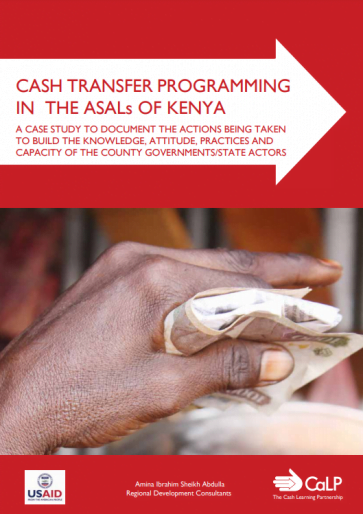Case Study
Cash Transfer Programming in the ASALs of Kenya
The CALP Network commissioned a study to document the impact and lessons learned from its engagement with state actors in the ASAL counties.
The study involved collection of data through secondary and primary sources. Given the focus of the project, a qualitative approach was deemed as most appropriate in capturing the changes in attitudes and practice in such a short period of time.
Specifically, the assignment sought to:
- Document lessons learned working with government on preparedness, contingency planning and coordination in relation to scalable CTP.
- Identify strengths, weaknesses, challenges and lessons learned in the current context, including consideration of aspects related to gender equality, protection mainstreaming, and inclusion of persons with disabilities and older people.
- Document what has been done in terms of the CALP Network and CoP’s activities to build capacity of state actors, its effectiveness, and lessons learned and a detailed account of measures taken to improve coordination and preparedness of key stakeholders to implement and scale-up cash transfer programming responses in Kenya.
- Document how this has impacted on the CTP capacities and preparedness of state actors and other stakeholders through capacity building, active knowledge transfer, development of good practice, and incorporation of CTP into relevant plans, policies and procedures.
- Document the processes and learning undertaken by the CALP Network as a result of working with government on CTP coordination and preparedness and scalable social protection in the Kenya context.
- Provide recommendations to take learning forward.
